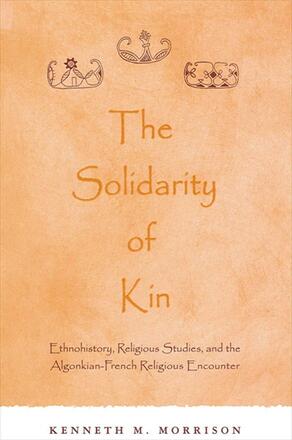
The Solidarity of Kin
Ethnohistory, Religious Studies, and the Algonkian-French Religious Encounter
Alternative formats available from:
Using the example of the Eastern Algonkians, this book argues that Native Americans did not convert to Christianity, but rather made sense of Christianity in their own traditional ways and for their own social purposes.
Description
Arguing that Native Americans' religious life and history have been misinterpreted, author Kenneth M. Morrison reconstructs the Eastern Algonkians' world views and demonstrates the indigenous modes of rationality that shaped not only their encounter with the French but also their self-directed process of religious change. In reassessing controversial anthropological, historical, and ethnohistorical scholarship, Morrison develops interpretive strategies that are more responsive to the religious world views of the Eastern Algonkian peoples. He concludes that the Eastern Algonkians did not convert to Catholicism, but rather applied traditional knowledge and values to achieve a pragmatic and critical sense of Christianity and to preserve and extend kinship solidarity into the future. The result was a remarkable intersection of Eastern Algonkian and missionary cosmologies.
Kenneth M. Morrison is Professor of Religion at Arizona State University. He is the author of The Embattled Northeast: The Elusive Ideal of Alliance in Abenaki-Euramerican Relations.
Reviews
"Ken Morrison moves to the essence of scholarly arguments in reviewing the postures taken by so many of his predecessors in seeking a definitive framework with which Indian religious traditions can be studied. To see methodologies examined in such a comprehensive manner causes great fear in readers when it becomes obvious that we have been scratching the surface of inquiry without resolving the issues." — Vine Deloria Jr., author of God is Red: A Native View of Religion and Custer Died for Your Sins: An Indian Manifesto
"The Solidarity of Kin greatly enhances the field of ethnohistory by adding selected perspectives from religious studies." — Jordan Paper, York University and the University of Victoria